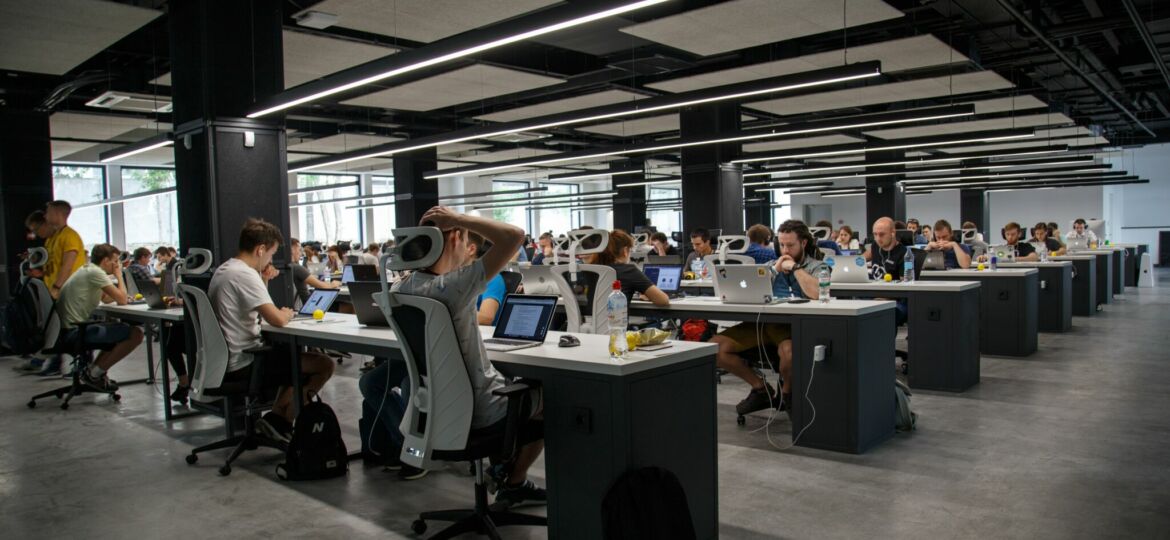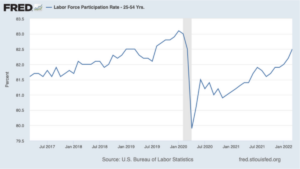
You’ve probably heard of the Great Resignation. A large proportion of the workforce has left their jobs leading to a shortage of skilled workers across many industries. Some economists believe this is one of the main reasons for high inflation as shortages from snarled supply chains and increased pay drive up costs and prices. It is a very logical and compelling story, except the facts don’t back it up.
An article from economist Paul Krugman’s NYT column presents data showing a very different picture. The first premise is people left the workforce and haven’t returned. According to the data below, that isn’t correct. There was a dip but the % of workers aged 25-54 who are employed has risen back to mid-2019 levels.
The second premise is many workers took early retirement or decided to call it quits. Well, that’s not accurate either. The % of workers aged 55-64 who are employed has risen to the same level as Jan 2020.
So what is going on?
Labor economist Arindrajit Dube says, it’s more a Great Reshuffling than a Great Resignation. People have been leaving their jobs but they have been returning to other jobs. The other trend is the increase of gig work, some 600,000 people more than average started their own companies.
Why is this important?
It is so easy to believe the common narrative. People are leaving their jobs creating large labor shortages for all employers. You might argue that this is true, a lot of people are leaving their jobs. The important thing is which people are leaving which jobs. I suspect people are choosing to leave ‘bad’ employers and moving to ones with better benefits, higher employee satisfaction and better prospects. Rather than impact every company, it suggests poorly managed companies have been hit hard, and well managed companies have benefitted.
The Takeaway
If you aren’t investing in your workforce, now is the time to rethink your approach. As more people hear about friends who moved to better companies, this trend isn’t going to slow down. And you don’t want to be one of those companies who are known as a ‘bad’ place to work.



